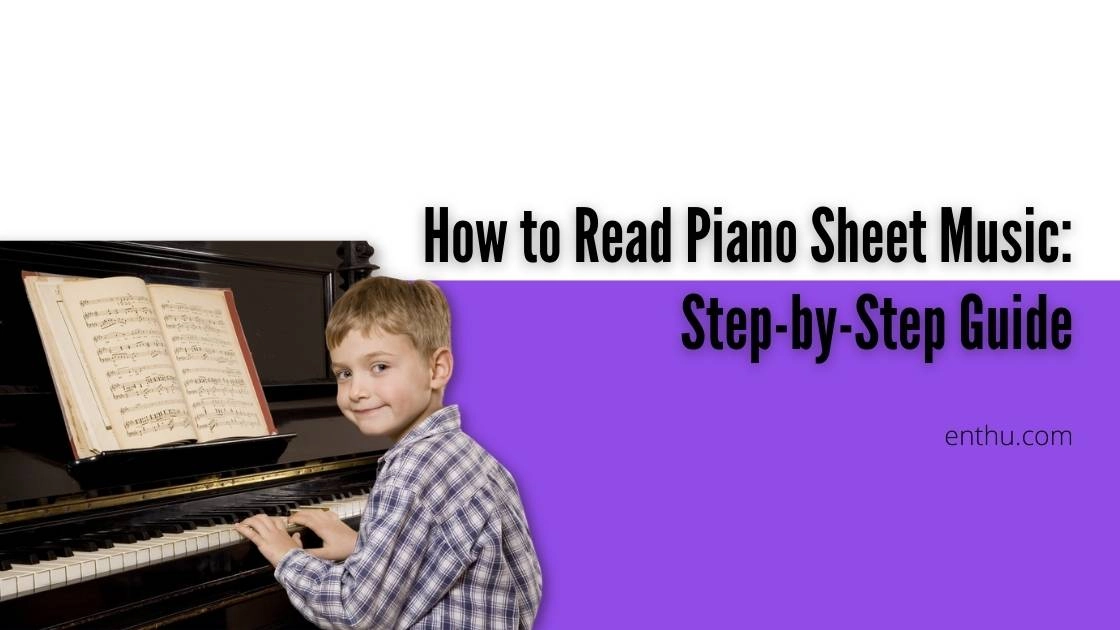"I play the notes as they are written, but it is God who makes the music."- Johann Sebastian Bach After reading this Bach quote, I bet anybody would be tempted to learn piano.
And, surely you can, but if it only was that easy. For starters, unlike Bach, you will need to worry about the budget. How much do piano lessons cost? Honestly, there’s no single-word answer to how much a piano lesson costs.
You will be surprised to know how much the prices vary depending on your location, age, medium of the classes, duration, the piano teacher’s credibility, and other requirements. Let me take you through the details that you must think about the budget before hiring a piano instructor.
- How Much Are Piano Lessons?
- Factors Affecting the Price of Piano Lessons
- Conclusion
- FAQ’s
- 1. How much do piano lessons typically cost?
- 2. Are group piano lessons cheaper than private lessons?
- 3. Do online piano lessons cost less than in-person lessons?
- 4. What factors influence the cost of piano lessons?
- 5. Are there any additional costs associated with piano lessons?
- 6. Is it worth paying for piano lessons?
- 7. How can I save money on piano lessons?
- 8. What is the typical duration of a piano lesson?
- 9. Are there financial aid options for piano lessons?
- 10. How do I find a qualified piano teacher?
How Much Are Piano Lessons?
The average cost of a half-an-hour piano lesson falls between $25 and $45. And the approximate cost of an hourly piano lesson varies from $50 to $100.
Cost for Weekly Piano Lessons
Payment Cycle | Class Duration | Cost |
Monthly | Weekly half-an-hour | $110 to $200 |
Monthly | Weekly hourly lessons | $210 to $330 |
Annual | Weekly half-an-hour | $1000 to $1400 |
Annual | Weekly hourly lessons | $1800 to $2400 |
Factors Affecting the Price of Piano Lessons
Think Before You Buy

As I have mentioned above, there are several factors affecting the cost of piano lessons. From the city you are residing to your age; the cost of piano lessons may vary dramatically considering the shift in the factors.
1. Time
What Duration should you Set for your Piano Lessons? Undoubtedly, length of the lesson is one of the primary factors for deciding the cost for your piano playing lesson. The most common lesson length set for a piano lesson are half-hourly and hourly.
And depending on the time set for the class, the lesson prices can change by half. For instance, the approximate price for a half-hour lesson is between $25 and $45. Contrastingly, the fee for an hour piano class rises almost double to $50 to $100.
What duration should you set for your piano lesson?
Well, the answer depends on the age and requirements of the student. Is the student a 5-year-old? Is the student aiming for a professional career or simple recreational skills? If you ask me, I would say go for a 30-minute lesson class if the student is too young or too old.
Because younger kids and senior citizens generally have less attention span in comparison to young adults and grown-ups. However, if the student is preparing for a professional journey as a pianist, even a 60-minute lesson would be less for them.
Did you know Bartolomeo Cristofori made the first modern-day piano?

2. Number of Classes per
Week Commonly people go for weekly classes for non-academic subjects and courses. Hence, let's talk about piano lesson costs on weekly basis.
Check the detailed, estimated fee structure above. But if you are taking more than one class per week, the price would definitely be higher than the expected budget.

How many classes should I take per week?
If you are learning to play piano for recreational purposes, I would suggest weekly piano classes. And if you still feel you need more, then you can also opt for two classes per week.
However, if the piano students want to be musicians, I suggest longer lessons and at least three to four classes per week.
3. Medium of taking class: Virtual v/s Physical classes

Are you buying an online course? Are you traveling to the piano instructor's house? Or are you hiring a private tutor for playing piano at home? Well, think wisely because each of these have a different range of prices. Of course, virtual classes are the cheapest these days and in-house piano lessons are the costliest.
However, if you are keen on taking physical classes but tight with the budget, I suggest taking group lessons at various music schools. These are mostly affordable. In addition to that, you can also check out group lessons in piano studio.


4. Geographical Location Where do you live?
Are you living in the financially buzzing CA? Or a culturally vibrant New York city? If you are living in one of these cities, prepare to pay a higher price for piano playing lessons than students in other places.
Also, Los Angeles piano teachers are amongst the highest charging instructors. I am talking about location because it’s one of the major factors affecting the cost of piano learning courses. Usually, physical lessons are costlier than virtual classes.
But in small towns and the countryside, sometimes, the price is significantly low. Even brilliant piano teachers charge less than the average teachers in bigger cities. Thanks to the low living cost of those places. So, I suggest researching the teachers’ fee structures in your city/town. If it’s too much, you always have online tutors and courses.

5. Teacher’s Credibility
Always check the teacher’s professional background, experience, and alma mater before buying a course.
Questions to Check Teacher's Credibility
Does the piano teacher have a degree in music?
How well versed are they with current music theory?
Do they play professionally in concerts and orchestras?
Where did they study from? Who are they playing with?
The price of the course/class will significantly change depending on the piano teacher’s bio. If your budget is tight and you are a beginner, then I suggest you go for someone with a regular music/piano diploma.
But if you are already playing a piano and want to play on the stage someday, then pick a tutor with a proper music degree from colleges like Berklee College of Music and Yale School of Music. The courses may come with a higher rate but you will get what you are looking for.
6. Discount Yep
Keyboard lessons are costlier and they do make a hole in your pocket. But if you can get a decent discount, the hole may be way smaller than you expected.
But, how to get a discount?
(This part is tricky, and the payment process may vary from the way I will explain.) Don’t go for per class payment. Always try to buy the classes as a wholesome course.
In fact, if you are confident about the teacher and want to go a long way in your musical journey, then you can also pay annually or half-yearly. That way, you are more likely to get a discount because most platforms offer discounts for annual or half-yearly payments.
And if they are not offering one, you can always ask for a discount. Try to do this before the first lesson. But if you aren’t sure enough about long-term plans, then, at least, go for monthly payments. Trust me. You can save a lot.
7. Topics You Want to Learn
Depending on the topics you want to learn, your level of learning piano will change. For instance, a beginner will start with the basics like playing piano with two hands, learning piano notes, etc. An intermediate student will probably prefer to learn piano chords, scales, and arpeggios.

On the contrary, an advanced student will be learning concepts like time signature and imply the knowledge while playing difficult piano pieces. As expected, the prices for beginner's piano lesson and advance piano training will be different.
I suggest you ask the costs of piano lesson as per your level. Again, if you struggling with a particular topic (such as reading sheet music), talk about it beforehand. Try to negotiate the pricing accordingly. To know more about how much piano lessons cost, watch this video.

Conclusion
In conclusion, the journey of blogging is both exciting and challenging. Whether you’re sharing personal stories, offering expert advice, or exploring creative writing, each post adds value to your audience and enhances your brand.
Remember to keep your content engaging, optimize for SEO, and interact with your readers to build a thriving community. With dedication and consistent effort, your blog has the potential to grow and reach a broader audience. Happy blogging!
FAQ’s
1. How much do piano lessons typically cost?
The cost of piano lessons can vary widely based on several factors including location, instructor experience, and lesson format. On average, you can expect to pay between $30 to $60 per hour for private lessons. Group lessons or online classes might cost less, typically ranging from $15 to $30 per session.
2. Are group piano lessons cheaper than private lessons?
Yes, group piano lessons are generally more affordable than private lessons. Since the cost is shared among multiple students, prices can range from $10 to $25 per session. However, consider that individual attention may be limited in a group setting.
3. Do online piano lessons cost less than in-person lessons?
Online piano lessons can often be less expensive than in-person lessons, with costs typically ranging from $15 to $40 per session. The convenience and flexibility of online learning can also be appealing for many students.
4. What factors influence the cost of piano lessons?
Several factors can influence the price of piano lessons:
Instructor's Experience: More experienced teachers often charge higher rates.
Location: Lessons in larger cities may be more expensive due to higher living costs.
Lesson Length: Longer lessons generally cost more.
Format: Private, group, and online lessons all have different pricing structures.
5. Are there any additional costs associated with piano lessons?
Yes, additional costs can include:
Books and Materials: Educational materials may be required for lessons.
Piano Tuning and Maintenance: If you have a piano, regular tuning and maintenance are necessary.
Recital Fees: Some instructors may charge for performance recitals or competitions.
6. Is it worth paying for piano lessons?
Investing in piano lessons can be very beneficial, especially if you want structured learning and personalized feedback. A skilled instructor can help you progress more quickly and avoid developing bad habits.
7. How can I save money on piano lessons?
Consider these tips:
Look for Group Discounts: Many music schools offer reduced rates for group lessons.
Explore Community Programs: Local community centers or schools may provide lower-cost lessons.
Inquire About Package Deals: Some instructors provide discounts if you book multiple lessons in advance.
8. What is the typical duration of a piano lesson?
Piano lessons usually last between 30 minutes to 1 hour. Beginners might start with 30-minute lessons, while more advanced students may benefit from longer sessions.
9. Are there financial aid options for piano lessons?
Some music schools and community organizations offer financial aid or scholarships for piano students. Research your local options and inquire about any assistance programs available.
10. How do I find a qualified piano teacher?
To find a qualified piano teacher, you can:
Ask for Recommendations: Friends, family, or music schools can provide referrals.
Check Online Reviews: Websites and social media can offer insights into instructors' teaching styles.
Schedule a Trial Lesson: Many teachers offer a trial lesson, allowing you to assess their teaching approach before making a commitment.
By considering these frequently asked questions, you can better understand the costs and factors associated with piano lessons, helping you make an informed decision.

Comments